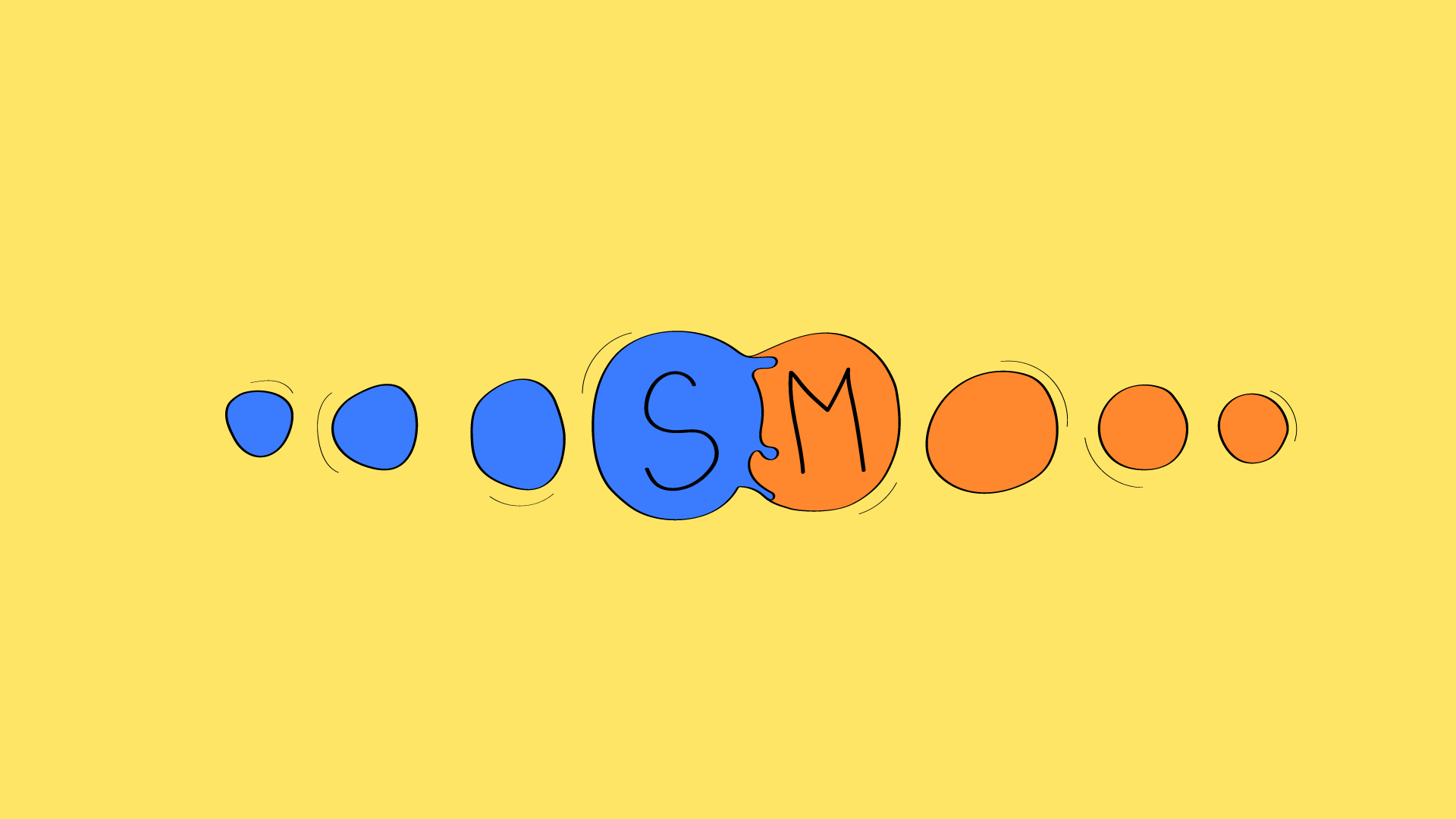Although lots of your potential clients’ contacts are available online, today’s digital environment does not always allow for a thorough investigation of their quality. This is why lots of decision-makers looking for new customers wonder what on earth a qualified business lead is and how to set criteria to identify them.
If you’re also working on your B2B lead generation strategy aiming to enhance your business results, this article will provide you with the necessary knowledge and answer all your questions. You will find out how to tell high-quality prospects from the people who aren’t likely to buy from you. You will also learn what makes marketing and a sales-qualified lead different and get to know how to convert them properly.
How to “detect” qualified leads?
Did you know that downloading a sales lead list from a third-party website does not guarantee that those contacts have any value? Despite this fact, numerous business owners spend hundreds of dollars hoping to quickly boost theirs inside and outside sales. Why doesn't such an approach work?
While a plethora of companies are eager to make you buy qualified leads, those addresses might be irrelevant to your industry, contain mistakes, be outdated, or even fake. So your investments won't be likely to pay off if you are not ready to spend some time examining your prospects’ demographics and preferences. What does it mean?
As long as your business has a specific target audience, it’s essential to create an Ideal Customer Profile (ICP) portraying the person who is most likely to purchase on your website. This will also rather enhance your progress in the appointment setting. There can be more than one buyer persona in your ICP, depending on your niche.
And if you already have an ICP, it’s time to investigate your sales funnel. This will help you figure out what types of business leads convert at different stages and understand how to set criteria to distinguish between a bystander and a qualified lead.
Set the right criteria for your qualified lead
It is crucial to point out that there isn't a standardized way to set criteria — each paradigm is unique to your business. At the same time, we have a handful of rules for you to follow. They will help you come up with specific characteristics to match your company’s needs.
B2b sales lead generation works best when a business owner updates their database using the contacts who are most likely to convert. The chances are high that those individuals will become your customers as soon as you apply a wise marketing strategy.
Let’s start with the top of your funnel and see who is likely to move down. If your company has a robust reputation and a bunch of case studies to boast, you might have a rather broad audience expressing interest in your services. What do you call the people who start being personally involved with your brand, and how do you know which segment is more prone to making a purchase?
Whenever you are thinking about a marketing campaign, it’s essential to target either your MQLs or SQLs. Don’t mix those cohorts of potential customers since they require different approaches.

For example, what if your top-of-the-funnel business leads might have shown some interest, but they aren’t actively interacting with your materials yet?
Your aim here is to develop trust and “sell ” your company’s value via effective content marketing. But what if a prospect has already requested a demo but isn’t making a purchase yet? The task here is totally different — to convince your lead that your offer will bring them the utmost value.
Only the people who reacted to your content or submitted their contact data can be considered qualified leads. So please, don’t take into account cold prospects and leads from a ready-made email list.
You should segment qualified leads in your digital marketing funnel into MQLs and SQLs. Each of those includes a subset of characteristics that define them as good or unsuitable. Let’s dive into the detailed descriptions of each criterion to figure out what’s hot and what’s not.
Typical characteristics of marketing qualified leads (MQLs)
Speaking about marketing qualified leads, it’s essential to point out that they might resemble any other potential customer at first glance. Those are business leads who are new to your website and the services your company provides. Nevertheless, there is a great difference between an MQL and an ordinary prospect who won’t be likely to buy. What is it?
MQLs typically move a little further down your funnel since they have already expressed interest in your services by taking action. They might have browsed your website several times to obtain crucial information or provided their email address to get a PDF guide or an ebook.
Here’s a set of criteria describing MQLs:
- they actively interact with your content;
- they provide their contact details;
- they spend lots of time reading your content;
- they click on your ads;
- they sign up for your newsletter;
- they come back to your website;
- they request details in a live chat or via a contact form.
If your B2B leads act like this, it’s a good sign showing that they might become your customers in the future.
Once you’ve identified your MQLs, weed out all the contacts that are less valuable. Delete the addresses of the people who don’t match your ICP (for instance, students), your company’s employees, and competitors.
While having a list full of MQLs is much more promising than trying to benefit from a generic one, please mind that not all MQLs will become your devoted customers, even if they engage with your content.
The fact is, it’s really difficult to estimate the extent of their interest until you’ve had a profound conversation with them. At the same time, these B2B leads have already taken action to learn more about your company, so you should definitely give them a chance — just put some time in nurturing them properly.

Please don’t expect an MQL to instantly buy from you. Focus on supplying awesome content instead to reach them across the customer touchpoints to help them move down your funnel.
If you don’t have that much time to develop meaningful relationships or don’t possess the necessary skills, there’s still a way out. You can resort to Belkins agency and entrust the process of MQL acquisition to our professionals. Applying the latest digital solutions, our experts will build a perfect lead list from scratch for you to enjoy a seamless appointment setting. You can also order an SQL list, so stay tuned to figure out which option will work best for you.
Essential criteria to identify a sales qualified lead (SQL)
A sales-qualified lead (SQL) is a person who is ready to buy your services as they already understand their value. These B2B leads have not simply expressed their interest in your offer; they are considering a purchase right now.
Each company has its own idea of a perfect SQL, depending on the industry and its specific needs. So you are also supposed to come up with a set of unique criteria to define SQL for your business. You may also want to update your key characteristics if you have already developed them. The fact is, today’s market is undergoing constant changes, so the purchasing patterns might change dramatically, too.
Having a sufficient amount of SQLs on your list creates a significant impact on both your inside and outside sales. B2B lead generation is most effective when the conversion rates at the middle of your funnel are high.
Here are some signs that your leads are qualified for sales:
- they ask about pricing and discounts;
- they indicate specific information, such as company size and their role in it;
- they request demos and try them out;
- they add products to a shopping cart;
- they willingly interact with your sales team;
- they fill out different forms on your website.
As you can see, SQLs are much more active since they not only know and like your brand but also trust it.

Difference between an MQL and SQL
It is not always easy to tell the difference between an MQL and an SQL since they might act in a similar manner. Therefore, focus on figuring out the lead’s intention and the degree of their interest.
An MQL is thinking about your offer but is willing to learn more to understand whether it meets their demands. These are the necessary steps they need to take in order to make the final decision. Unlike MQLs, SQLs are already familiar with your offer since they have studied it properly. They already know what value they’ll get once they make a purchase.
At the same time, not all SQLs will turn into your loyal customers. Some of them might come across a cheaper offer or a solution that is better tailored to their needs. But most SQLs will still convert — and that’s the reason why this group of prospects is the best for lead generation.
Curiosity without the intention to buy defines an MQL while considering a purchase means that your prospect is an SQL.
So if you want to generate many new business leads within a short time, choose one of the most trustworthy lead generation companies. For instance, Belkins agency experts can easily identify the people who will be more likely to buy your services. We will help you organically grow your database and apply the right strategies to strengthen the relationship with your potential customers.
Being one of the world’s best lead generation companies, Belkins agency never uses ready-made client lists. We collect the most appropriate contacts for you and help you perform the alchemy of turning your prospects into clients by developing an individual approach to them.
